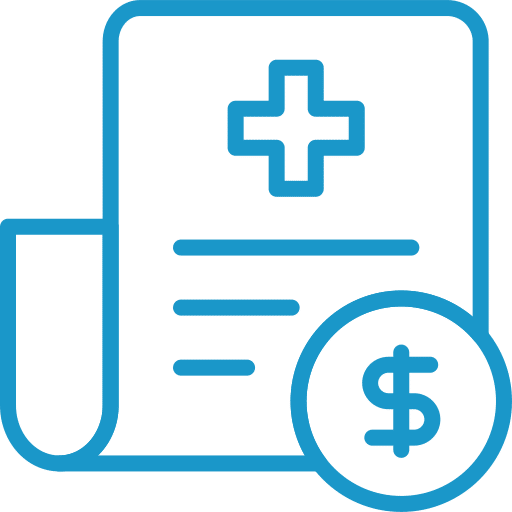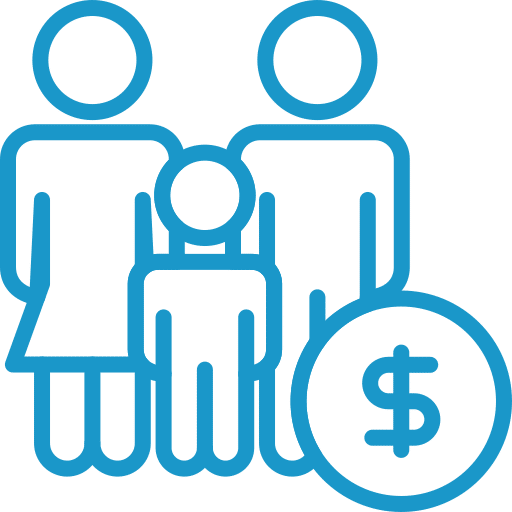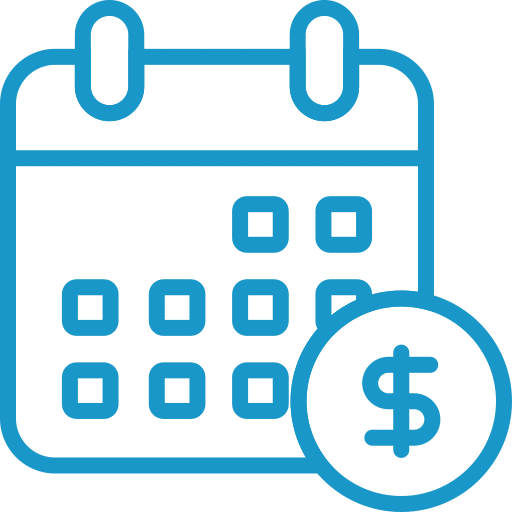Personal Loans for the Self Employed
Get pre-qualified for a $100k personal loan in just minutes. Checking rates won’t affect your credit score







How to Get a Personal Loan When You're Self Employed
Whether you’re newly self-employed or have been your own boss for decades, you’ll know that securing a loan, whether it be a mortgage, credit card, or personal loan, can be incredibly difficult. Not because you aren’t making enough money, but largely because banks aren’t designed to comprehend the job security you have when you make your own money, and they aren’t sure how to manage fluctuating income.
But are you destined to rely on your own cash forever?
Applying for a personal loan is fast and easy:
Need help finding the right loan?
No worries, we've got you covered! Compare personalized loan options in just minutes.
How Pasha Funding Works

Compare personal loan rates in April, 2025
Compare personal loan rates
Can you get a personal loan if you are self-employed?
The short answer is yes – but you will need to prove your income and may have to search for a lender prepared to offer personal loans to the self-employed. It is not as straightforward as for those who are paid regularly by a single employer but provided you have the paperwork and meet the requirements there are loans available.
How much can I borrow if self-employed?
As with all personal loans, the amount a lender will provide largely depends on your income and financial situation. With proof of a suitable income (every lender differs in the actual amount), good credit, and a low debt-to-income ratio you may be able to borrow any reasonable amount.
But this works both ways, the more you borrow the higher the monthly repayments will be. You need to ensure that you can comfortably afford the repayments - even on your lowest income months - and assure the lender of this, too.
What personal loan lenders offer loans for the self-employed?
There are many lenders in the marketplace prepared to offer loans to the self-employed and among the best are these 10:
What do I need to consider before thinking about applying for a personal loan?
Here are five areas to look at if you are thinking about taking out a personal loan:
1.) Income
Lenders need to be sure you can afford the repayments and will have a minimum annual income requirement you have to meet or exceed before they will consider your application. This may be as low as $20,000 (Avant) but is often much more – SoFi requires at least $45,000. Be aware that very often lenders don’t publish the figures for minimum income.
You’ll need to be able to provide proof in the form of bank statements and tax returns that cover at least the most recent two years.
2.) Credit rating
A good credit score is an important part of securing any personal loan and that includes the self-employed. Credit scores are built from various factors including the amount of debt you currently hold, consistency of repayments, and credit history.
You may struggle to find a lender if your personal credit score is much below 560 and are more likely to need 600 and above. The higher your score, the bigger and better loan packages you will be offered.
3.) DTI (Debt to income ratio)
Your debt-to-income ratio is another factor that needs to be considered. Your DTI is a comparison of your gross income and the amount you pay to service your accumulated debt. This number, expressed as a percentage, is an indicator of how easily you will cope with the repayments. Although some lenders may be prepared to accept a figure of as much as 50% for someone who is otherwise well qualified for a loan, something like 36% or below is more likely to tick the right box.
4.) Origination fee
Loans don’t come free, and apart from the interest charged many lenders also charge an origination fee. This covers the administrative fees, credit checks, and so on, and is either added as part of the loan or collected on closing. The fee can be as low as 1% but may be as much as 8% so it may affect which lender you choose.
5.) Collateral
While some personal loans require no collateral, others want a guarantee in the form of assets so that if the borrower defaults, they can seize the asset and recoup their money. Often the collateral is your home but may be something else of value, such as a car, investments, antiques, or precious metals.
Quick links

Ready to apply for a personal loan? Get started today.
Compare personal loan rates
What proof of income do you need for a personal loan?
As a self-employed person, it is likely you will receive income from multiple sources and a lender will demand proof that your combined income streams fulfill its minimum requirements. The documents you need will include:
- Bank statements
- Tax returns including 1099s
You will almost certainly have to gather documents that cover at least the last two years and possibly more.
Calculate your monthly payments
Total Payment
-
Total Interest
-
Monthly Payment
-
Ready to apply for a personal loan?
Compare rates from top lenders with no impact on your credit, ever.
How can I make it more likely that I’ll get approved?
First of all, you should make certain you have all the documents you require before you apply:
- Proof of identity
- Proof of address
- Income verification
You may want to consider finding someone to be a cosigner, particularly if you have become self-employed recently and don’t have two years of financial records. A cosigner is someone who has good credit and a regular income, often a family member or close friend, who is prepared to guarantee the loan and be jointly responsible for the monthly repayments.
A cosigner offers the lender security and makes it more likely they will offer a loan. Even if you don’t strictly need a cosigner, having one can get you a better loan deal with lower interest rates.
Make certain the cosigner knows what they are getting into and that you are not risking a valued relationship if your plans go wrong.
What alternatives can I consider to a personal loan?
A personal loan is not the only sort of finance a self-employed person can seek. You may consider these alternatives:
- A secured personal loan is often easier to obtain because the lender has the security of your assets as a guarantee. A Home Equity loan is the most common choice. These loans often offer low interest rates but be aware that if you fail to make repayments your home is at risk.
- A credit card may be a good option particularly if you qualify for one that offers 0% interest for an introductory period. Don’t forget that the standard APR will apply to any outstanding debt at the end of that time.
How to apply for a personal loan if self-employed
- Do your research and compare lenders. Bear in mind APRs, terms, and fees, and whether they offer the level of loan and term that suits you.
- Choose which is your best option.
- Complete the application once you have all your documents to hand.
- Get your funds and use them to fulfill your plans.
When you have decided that a personal loan is for you, take your time to select the best option for you and make your application. Most online applications are straightforward, with fast approval and funding. Be aware that you’ll usually need to provide proof of income either during or after your application, so have those to hand. If you’re ready to find the best personal loan for you, start browsing through the loans in our tables. All you need to do once you’ve found one that’s right for you is apply, and you’ll soon have the money you need.
Personal Loans for Every Occasion
Find Your Best Rate
Compare Best Personal Loans
Personal Loan Payoff Calculator
Personal Loan Lender Reviews
Personal Loans By Credit
Personal Loans for Fair Credit
Personal Loans for Good Credit
Personal Loans for Excellent Credit
Personal Loan Types
Auto Repair Loans
Credit Card Consolidation Loans
Fast Personal Loans
Home Improvement Loans
Horse Barn Financing
Wedding Loans
Family Planning Loans
Funeral Financing
Land Purchase Financing
Manufactured Home Financing
Medical Loans
Cosmetic & Plastic Surgery Financing
Owner Builder Construction Loans
Personal Loans for House Down Payment
Personal Loans for Self Employed
Personal Loans for Furniture Expenses
Student Loans
Debt Consolidation Loans
Vacation & Travel Loans
Emergency Personal Loans
Personal Loans with Co-signers
Home Improvement Financing
Appliance Financing
Bathroom Remodel Financing
Basement Remodel Financing
Boat Dock Loans
Deck Financing
Driveway Paving Financing
Fence Financing
Flooring Financing
Furnace Financing
Garage Financing
Home Addition Financing
Hot Tub Financing
HVAC Financing
Home Insulation Financing
Interior & Exterior Painting Financing
Kitchen Remodel Financing
Kitchen Cabinet Financing
Pole Barn Financing
Roof Financing
Solar Panel Financing
Swimming Pool Financing
Sunroom Addition Loans
Window Replacement Financing
Loan rate & terms disclosure: Prequalified rates are based on the information you provide and a soft credit inquiry. Receiving prequalified rates does not guarantee that the Lender will extend you an offer of credit. You are not yet approved for a loan or a specific rate. All credit decisions, including loan approval, if any, are determined by Lenders, in their sole discretion. Rates and terms are subject to change without notice. Rates from Lenders may differ from prequalified rates due to factors which may include, but are not limited to: (i) changes in your personal credit circumstances; (ii) additional information in your hard credit pull and/or additional information you provide (or are unable to provide) to the Lender during the underwriting process; and/or (iii) changes in APRs (e.g., an increase in the rate index between the time of prequalification and the time of application or loan closing. (Or, if the loan option is a variable rate loan, then the interest rate index used to set the APR is subject to increases or decreases at any time). Lenders reserve the right to change or withdraw the prequalified rates at any time.
Requesting prequalified rates on Credible is free and doesn't affect your credit score. However, applying for or closing a loan will involve a hard credit pull that impacts your credit score and closing a loan will result in costs to you.









